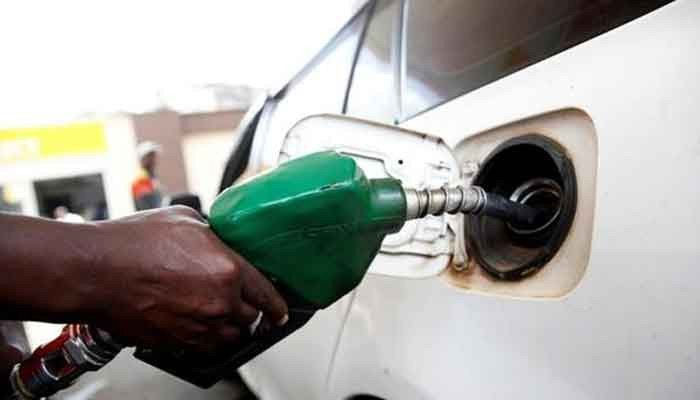Fuel prices may hike up to Rs16.89/litre
If Rs10 PL and 17 percent GST are added, the petrol price will rise to around Rs290/litre from July 1, 2022
KARACHI: The domestic prices of diesel and petrol are expected to rise by Rs16.89 and Rs4.55/litre excluding Petroleum Levy (PL) and General Sales Tax (GST) in the next fortnight, The News has learnt.
If the government charges the PL of Rs10/litre on diesel and petrol along with the GST, the diesel price will increase massively from July 01, 2022.
The ex-depot price of petrol has been worked out at Rs238.44 for the next fortnight compared to Rs233.89/litre for the current fortnight, an increase of Rs4.55/litre.
If Rs10 PL and 17 percent GST are added, the petrol price will rise to around Rs290/litre from July 1, 2022.
The ex-depot price of diesel has been calculated at Rs280.20/litre for the next fortnight against Rs263.31/litre in the current fortnight, which translates into an increase of Rs16.89/litre. If Rs10 PL and 17 percent GST is included, the price of diesel may go up to Rs340/litre for the local consumers. The government passed Rs50 PL for every litre of petroleum products in the Finance Bill 2022-23 on Wednesday, as demanded by the International Monetary Fund (IMF).
The ex-depot prices of both fuels have been calculated based on their international market rates from June 14-28.
During the period under review, the price of crude oil fell by $2.59/barrel; however, the price of products i.e., diesel and petrol went up by $3.66 per barrel.
The fall in the prices of crude oil won’t benefit the consumers in the domestic market as the prices of diesel and petrol are linked to the global prices of these products rather than crude oil under import parity price (IPP) mechanism.
According to sources in the sector, the government would pass on the impact of international prices to consumers coupled with Rs10/litre PL.
It is expected that the government won’t impose GST. However, if slapped, it wouldn’t be charged at the high rate of 17 percent in the next fortnight and would be increased gradually. The local prices of diesel and petrol have peaked to their highest levels in the last one month after being kept frozen for three months as per the policy of previous government to pay subsidy for keeping the prices stabilised.
The present government, however, abolished the subsidies on fuel prices on the IMF to requalify for Extended Fund Facility (EFF). The price hike has been the main issue between Pakistan and the IMF as part of an agreement to withdraw subsidies in oil and power sectors to reduce the fiscal deficit before the annual budget is presented next month.
Ousted Prime Minister Imran Khan had given the subsidy in his last days in power to cool down public sentiments in the face of double-digit inflation, a move the IMF said deviated from the terms of the 2019 deal. In addition to the $900 million tranche, the resumption of IMF loan programme will also unlock other external financing for the cash-strapped country, whose foreign reserves cover is still thin.
-
 Hailey Bieber's Subtle Gesture For Eric Dane’s Family Revealed
Hailey Bieber's Subtle Gesture For Eric Dane’s Family Revealed -
 Moment Prince William 'broke Down' And 'apologised' To Kate Middleton
Moment Prince William 'broke Down' And 'apologised' To Kate Middleton -
 Paul Mescal And Gracie Abrams Stun Fans, Making Their Romance Public At 2026 BAFTA
Paul Mescal And Gracie Abrams Stun Fans, Making Their Romance Public At 2026 BAFTA -
 EU Rejects Any Rise In US Tariffs After Court Ruling, Says ‘a Deal Is A Deal’
EU Rejects Any Rise In US Tariffs After Court Ruling, Says ‘a Deal Is A Deal’ -
 King Charles Congratulates Team GB Over Winter Olympics Success
King Charles Congratulates Team GB Over Winter Olympics Success -
 Meryl Streep Comeback In 'Mamma Mia 3' On The Cards? Studio Head Shares Promising Update
Meryl Streep Comeback In 'Mamma Mia 3' On The Cards? Studio Head Shares Promising Update -
 Woman Allegedly Used ChatGPT To Plan Murders Of Two Men, Police Say
Woman Allegedly Used ChatGPT To Plan Murders Of Two Men, Police Say -
 UK Seeks ‘best Possible Deal’ With US As Tariff Threat Looms
UK Seeks ‘best Possible Deal’ With US As Tariff Threat Looms -
 Andrew Arrest Fallout: Princess Beatrice, Eugenie Face Demands Over Dropping Royal Titles
Andrew Arrest Fallout: Princess Beatrice, Eugenie Face Demands Over Dropping Royal Titles -
 Rebecca Gayheart Breaks Silence After Eric Dane's Death
Rebecca Gayheart Breaks Silence After Eric Dane's Death -
 Kate Middleton 2026 BAFTA Dress Honours Queen Elizabeth Priceless Diamonds
Kate Middleton 2026 BAFTA Dress Honours Queen Elizabeth Priceless Diamonds -
 Sterling K. Brown's Wife Ryan Michelle Bathe Reveals Initial Hesitation Before Taking On New Role
Sterling K. Brown's Wife Ryan Michelle Bathe Reveals Initial Hesitation Before Taking On New Role -
 BAFTA Film Awards Winners: Complete List Of Winners
BAFTA Film Awards Winners: Complete List Of Winners -
 Millie Bobby Brown On Her Desire To Have A Big Brood With Husband Jake Bongiovi
Millie Bobby Brown On Her Desire To Have A Big Brood With Husband Jake Bongiovi -
 Backstreet Boys Admit Aging Changed Everything Before Shows
Backstreet Boys Admit Aging Changed Everything Before Shows -
 Biographer Exposes Aftermath Of Meghan Markle’s Emotional Breakdown
Biographer Exposes Aftermath Of Meghan Markle’s Emotional Breakdown




